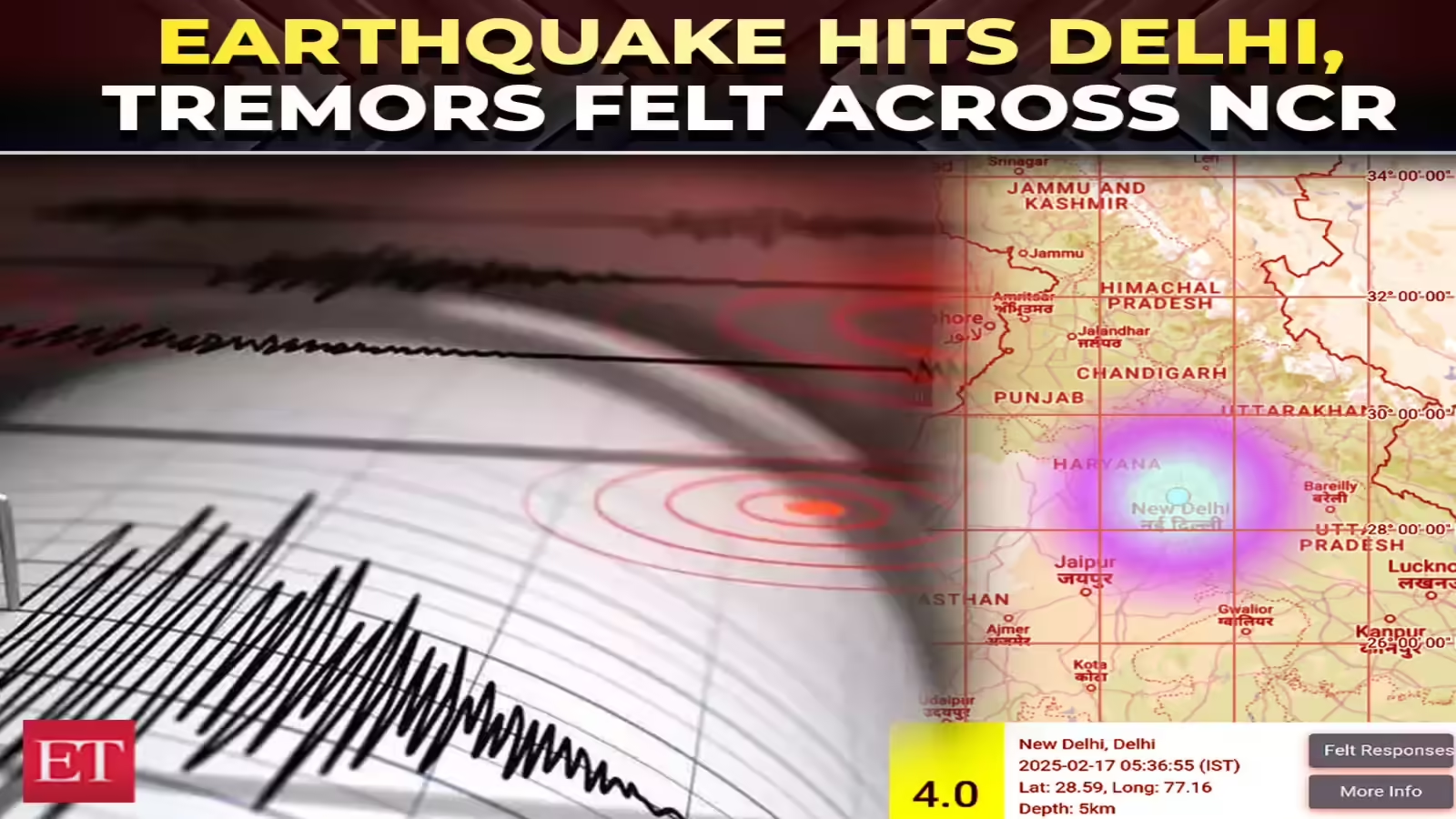
Tremors Rock Delhi-NCR: 4.4 Magnitude Earthquake Strikes with Epicentre in Haryana’s Jhajjar
A moderate earthquake measuring 4.4 on the Richter scale struck the Delhi-NCR region on Thursday, sending tremors across Noida, Gurugram, Faridabad, and Ghaziabad. The National Center for Seismology (NCS) confirmed that the epicentre was located in Jhajjar, Haryana, at a depth of 10 kilometers.
The quake, which caused buildings to shake, led to panic among residents, many of whom rushed outdoors fearing aftershocks. There have been no immediate reports of injuries or property damage, but the incident has reignited concerns about the region’s seismic vulnerability.
Eyewitnesses shared their experiences, highlighting the suddenness and intensity of the tremors. A resident from Gurugram, Haryana, told ANI, “We were sitting and having tea when we suddenly felt strong tremors. I immediately asked everyone to move out of the building, and everyone rushed out in fear.”
Another resident from Ghaziabad, Uttar Pradesh, said, “I had just woken up when I felt the jolt. It was frightening. There was an earthquake just a few days ago. Delhi-NCR experiences such tremors often, so we must stay alert and take necessary precautions.”
This event comes just a few months after a similar incident on February 17, when a 4.0 magnitude earthquake hit the region. That quake, with a depth of 5 kilometers, occurred at 5:36 am, with the epicentre reported 9 km east of New Delhi (coordinates: 28.59°N, 77.16°E).
Experts highlight that Delhi is classified under Seismic Zone IV by the Delhi Disaster Management Authority, marking it as a “High Damage Risk Zone”. This classification indicates a significant possibility of moderate to strong earthquakes in the area.
The recurring tremors underline the need for enhanced earthquake preparedness, awareness campaigns, and strict adherence to building safety norms, especially in a densely populated and urbanized region like Delhi-NCR.
Overview
Mission: To provide timely, in-depth analysis and reporting on digital policy, tech adoption, and the impact of transformation on citizens and businesses.
Focus Areas: Digital governance (e‑services, e‑payment systems like UPI), FinTech, cyber‑security, digital identity (Aadhaar), digital literacy, Internet of Things, AI, and rural connectivity initiatives.
Audience: Policymakers, tech leaders, entrepreneurs, academics, and citizens interested in India’s digital future.
Under Srinivas G. Roopi’s leadership, Digital India Times offers a trusted window into the breakthroughs and challenges of India’s digital revolution—staying true to its tagline by continuously tracking the transformation reshaping the country.
Copyright ©2025 Digital IndiaTimes. All Rights Reserved
Designed and Developed by Galaxy Tech Solutions